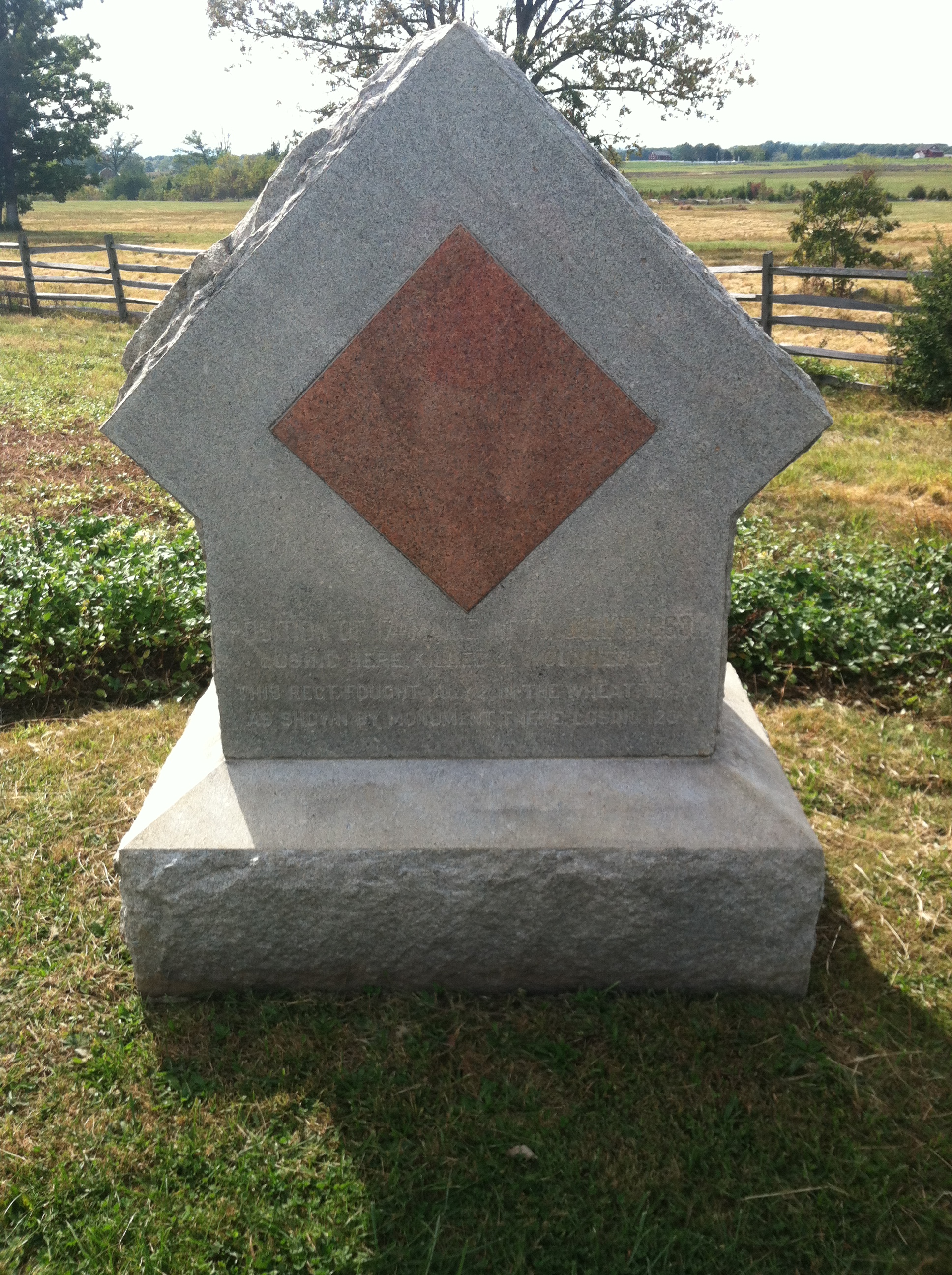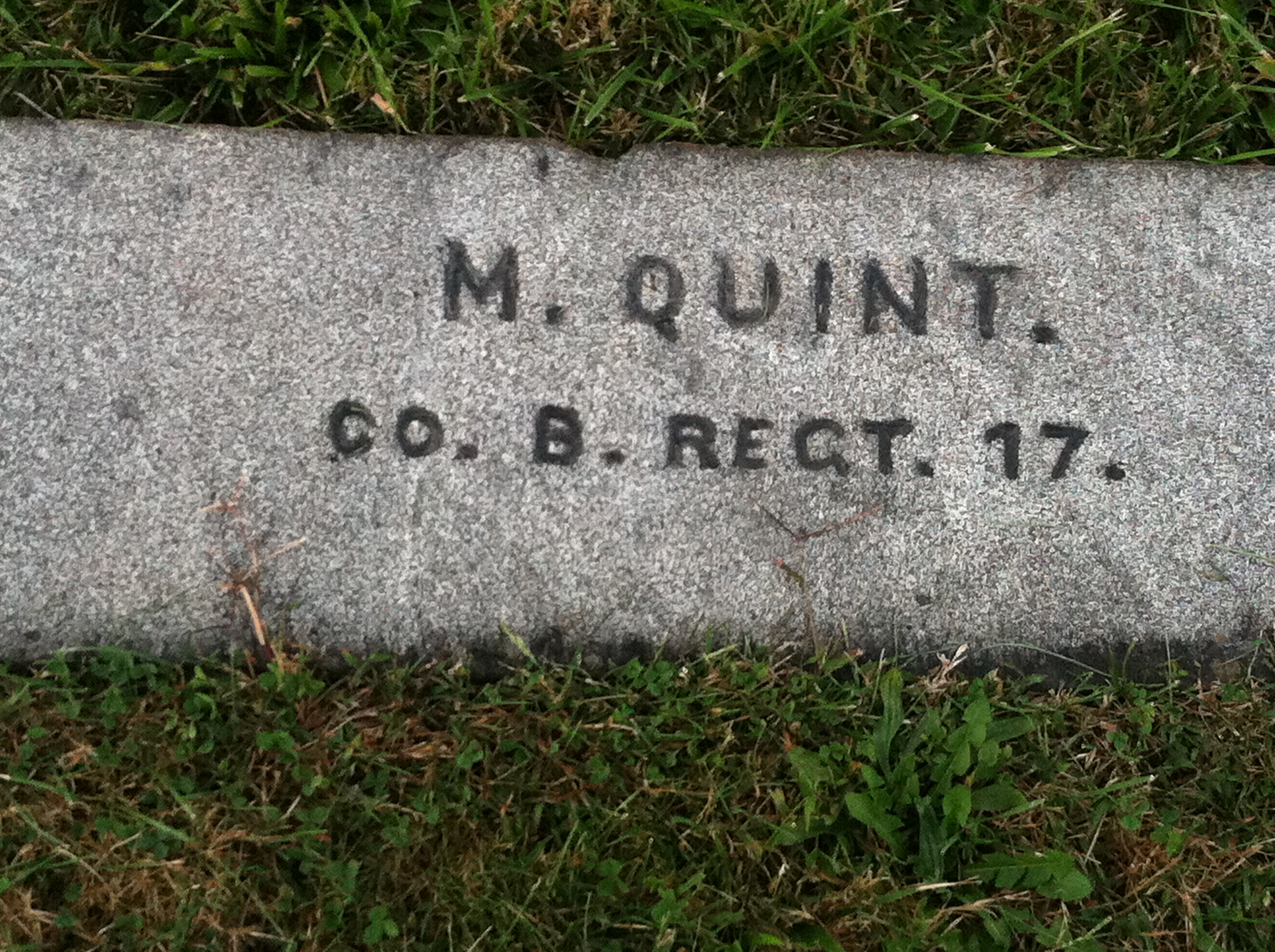What It’s All About
I was in Gettysburg this past weekend to take an all-day tour of the Union lines from Culp’s Hill down to Little Round Top. In total, the group walked about ten miles over the course of the day, and I got to see a lot of little nooks and crannies on the battlefield that I had never seen before. But, for me, the thing I get the most out of at Gettysburg is in the National Cemetery. There, surrounded by his comrades who were also killed in Adams County in the summer of 1863 is one of my ancestors, Monroe Quint.
Monroe Quint, to be precise, is my second cousin separated by four generations. To be sure, that doesn’t have the same ring as great-great-great grandfather, but I still visit his grave every time I’m in Gettysburg. It adds that personal touch that so many people search for when they study history; Lincoln’s Gettysburg Address isn’t just “that cause for which they here, gave the last full measure of devotion”, but rather, “that cause for which he here, gave his last full measure of devotion.”
Monroe Quint grew up in Stow, Maine, on the border with New Hampshire, and, by all accounts, was a good soldier. He enlisted in the 17th Maine Infantry during the summer of 1862, when Maine was raising new regiments in lieu of the Union setbacks on the Virginian Peninsula. He fought at Fredericksburg, and during the chaos of the Battle of the Chancellorsville, where he was given the Kearny Cross, an award specific to the First Division, Third Corps. And then, at Gettysburg.

(Photo by Ryan Quint)
The 17th Maine’s major story at the Battle of Gettysburg is their action in the Wheatfield on day two of the battle, but Monroe’s story culminates on day three. After the heavy losses sustained fighting on Sickles’ salient, the Third Corps was moved to the reserve towards the center of Meade’s lines, where they were posted. And on the afternoon of July 3, the Army of Northern Virginia opened up a truly massive artillery bombardment that dropped shells all around the Federal lines. Most of those shots sailed over the 17th, but a few did land in their midst. One such shell exploded in the middle of Company B, instantly killing Monroe, one of his company sergeants Cyrus Hall, and wounding three others.
The mention of Cyrus Hall is also important because of the coincidences of history—Hall came from my hometown. I grew up in a small town, Gorham, and simply put, there isn’t much there. But, on the ground of what today is a college campus, there is a white monument to the citizens of Gorham who fought and died in the Civil War, with a few names from the Spanish American War added later. And on one of the sides, is Cyrus Hall’s name. At Gettysburg, where a divided nation came to fight the bloodiest battle in the history of the Western Hemisphere, my ancestor, and a soldier from my hometown, were killed side-by-side.
And so, every time I go to Gettysburg, I go to the National Cemetery; I wrap my way around the other sections, until I get to the Maine state section, and then I traverse to Row D, site 11.

(Photo by Ryan Quint)
What about you, readers? What draws you in about the Civil War or history in general? Did you have ancestors fight?
Very well-written, thanks for sharing. To see my 82nd Ohio ancestor’s experience (he was captured on July 1,1863), see http://tinyurl.com/7pg7tfr.
My great great great grandfather was a Private in the 17th Virginia Infantry — Corse’s Brigade, Pickett’s Division, Longstreet’s Corps, Army of Northern Virginia.
Have had a blast re-tracing his steps, from the day they fled Alexandria, VA on the train to Manassas the day after Virginians voted to secede, all the way to Appomattox. Really wish he kept a diary though.
But beyond the personal connection, the Civil War is a bottomless well of compelling drama and fascinating people.
I am writing a book about the Kearny Cross and would be pleased to hear anything more you may know about Monroe Quint who was killed 156 years ago today. bob@segtours.com